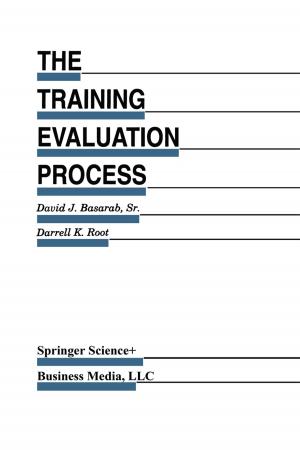What is Said
A Theory of Indirect Speech Reports
Nonfiction, Religion & Spirituality, Philosophy, Reference, Mind & Body, Reference & Language, Language Arts| Author: | R. Bertolet | ISBN: | 9789400920613 |
| Publisher: | Springer Netherlands | Publication: | December 6, 2012 |
| Imprint: | Springer | Language: | English |
| Author: | R. Bertolet |
| ISBN: | 9789400920613 |
| Publisher: | Springer Netherlands |
| Publication: | December 6, 2012 |
| Imprint: | Springer |
| Language: | English |
The notion of what someone says is, perhaps surprisingly, some what less clear than we might be entitled to expect. Suppose that I utter to my class the sentence 'I want you to write a paper reconciling the things Russell claims about propositions in The Philosophy of Mathematics for next week'. A student who was unable to get up in time for class that day asks another what I said about the assignment. Several replies are in the offing. One, an oratio recta or direct speech report, is 'He said, "I want you to write a paper reconciling the things Russell claims about propositions in The Philosophy of Mathematics for next week. '" Another, an oratio obliqua or indirect speech report, consists in the response 'He said that he wants us to write a paper reconciling . . . '. Yet another, reflecting a perhaps accurate estimate of the task involved, editorializes: 'He said he wants us to do the impossible'. Or, aware of both this and my quaint custom of barring those who have not successfully completed the assignment from the classroom, one might retort 'He said he doesn't want to meet next week'. Since 'says' is construable in these various ways, it is at best unhelpful to write something like 'Alice said "Your paper is two days late", thereby saying that Tom's paper was two days late.
The notion of what someone says is, perhaps surprisingly, some what less clear than we might be entitled to expect. Suppose that I utter to my class the sentence 'I want you to write a paper reconciling the things Russell claims about propositions in The Philosophy of Mathematics for next week'. A student who was unable to get up in time for class that day asks another what I said about the assignment. Several replies are in the offing. One, an oratio recta or direct speech report, is 'He said, "I want you to write a paper reconciling the things Russell claims about propositions in The Philosophy of Mathematics for next week. '" Another, an oratio obliqua or indirect speech report, consists in the response 'He said that he wants us to write a paper reconciling . . . '. Yet another, reflecting a perhaps accurate estimate of the task involved, editorializes: 'He said he wants us to do the impossible'. Or, aware of both this and my quaint custom of barring those who have not successfully completed the assignment from the classroom, one might retort 'He said he doesn't want to meet next week'. Since 'says' is construable in these various ways, it is at best unhelpful to write something like 'Alice said "Your paper is two days late", thereby saying that Tom's paper was two days late.















